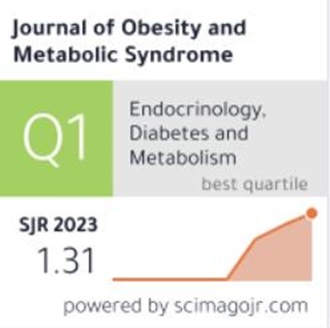2型糖尿病缓解并显著减轻体重:定义和循证干预
IF 4.7
Q1 ENDOCRINOLOGY & METABOLISM
引用次数: 4
摘要
根据传统的治疗方法,2型糖尿病(T2D)一直被认为是一种无法治愈的慢性疾病。关于T2D自然病程的临床和病理生理学研究表明,血糖控制随着所需降糖药数量的增加而恶化,因为β细胞功能随着时间的推移逐渐下降。然而,最近的研究表明,在代谢手术、强化生活方式改变或药物治疗后,T2D得到缓解,这提高了β细胞功能可能得到保留或β细胞功能下降甚至可能是可逆的可能性。世界卫生组织以及美国糖尿病协会和欧洲糖尿病研究协会承认缓解是一个适当的管理目标。鉴于目前T2D逆转的证据,医生需要接受有关治疗方案的教育,以实现T2D缓解,以便他们能够积极地为那些希望探索这些治疗方法的患者提供咨询。这篇综述将介绍每一种方法,总结它们的有益效果、支持证据、可持续性程度以及未来需要解决的挑战。本文章由计算机程序翻译,如有差异,请以英文原文为准。
Type 2 Diabetes Remission with Significant Weight Loss: Definition and Evidence-Based Interventions
Type 2 diabetes (T2D) has long been regarded as an incurable and chronic disease according to conventional management methods. Clinical and pathophysiological studies on the natural course of T2D have shown that blood glucose control worsens with an increase in the number of required anti-hyperglycemic agents, as β-cell function progressively declines over time. However, recent studies have shown remission of T2D after metabolic surgery, intensive lifestyle modification, or medications, raising the possibility that β-cell function may be preserved or the decline in β-cell function may even be reversible. The World Health Organization as well as the American Diabetes Association and the European Association for the Study of Diabetes recognize remission as an appropriate management aim. In the light of the state of evidence for T2D reversal, physicians need to be educated on treatment options to achieve T2D remission so that they can actively play a part in counseling patients who may wish to explore these approaches to their disease. This review will introduce each of these approaches, summarizing their beneficial effects, supporting evidence, degree of sustainability, and challenges to be addressed in the future.
求助全文
通过发布文献求助,成功后即可免费获取论文全文。
去求助
来源期刊

Journal of Obesity & Metabolic Syndrome
ENDOCRINOLOGY & METABOLISM-
CiteScore
8.30
自引率
9.60%
发文量
39
审稿时长
19 weeks
期刊介绍:
The journal was launched in 1992 and diverse studies on obesity have been published under the title of Journal of Korean Society for the Study of Obesity until 2004. Since 2017, volume 26, the title is now the Journal of Obesity & Metabolic Syndrome (pISSN 2508-6235, eISSN 2508-7576). The journal is published quarterly on March 30th, June 30th, September 30th and December 30th. The official title of the journal is now "Journal of Obesity & Metabolic Syndrome" and the abbreviated title is "J Obes Metab Syndr". Index words from medical subject headings (MeSH) list of Index Medicus are included in each article to facilitate article search. Some or all of the articles of this journal are included in the index of PubMed, PubMed Central, Scopus, Embase, DOAJ, Ebsco, KCI, KoreaMed, KoMCI, Science Central, Crossref Metadata Search, Google Scholar, and Emerging Sources Citation Index (ESCI).
 求助内容:
求助内容: 应助结果提醒方式:
应助结果提醒方式:


